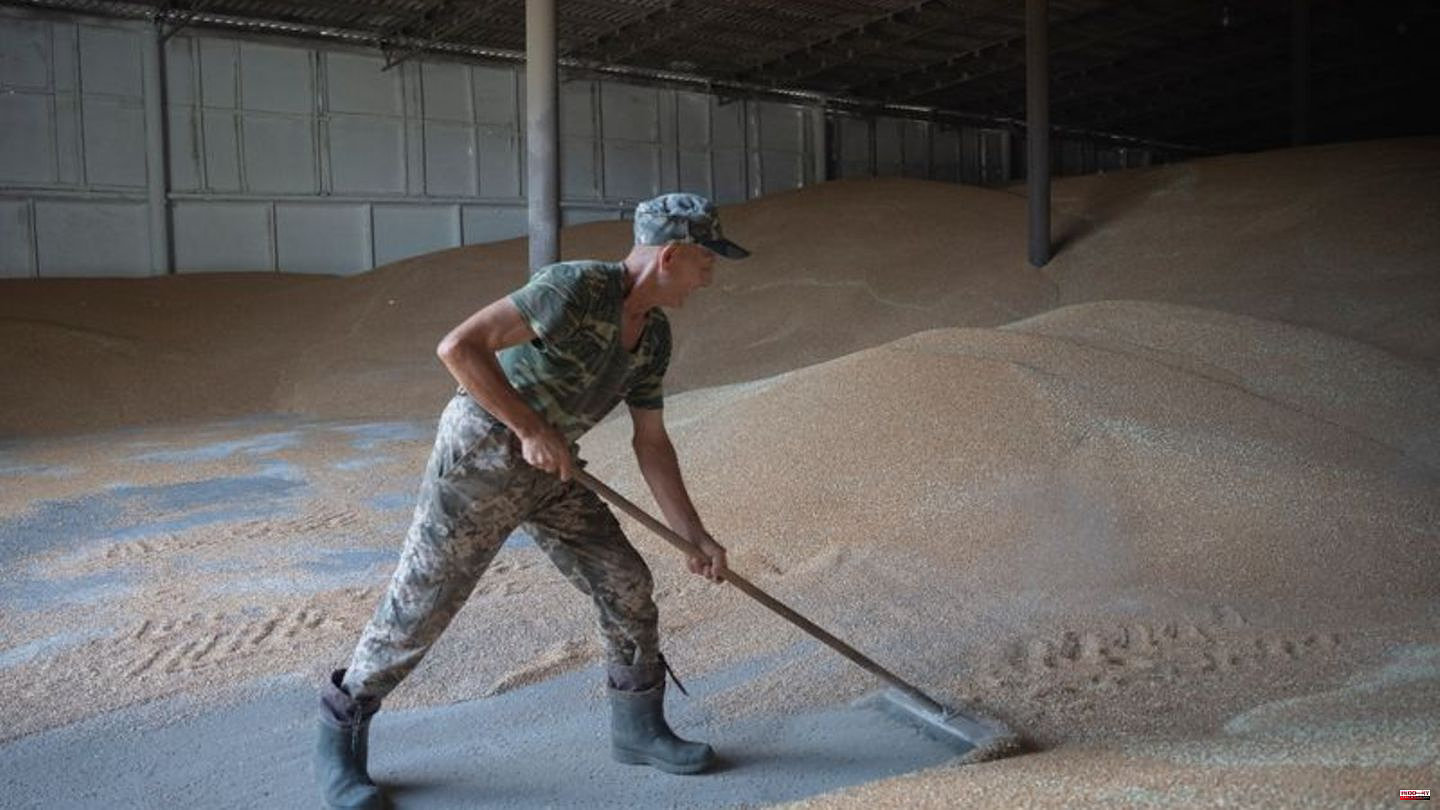Under pressure from farmers, a majority of EU states want stricter customs regulations for certain foods from Ukraine. The ambassadors of the EU states agreed on a new compromise on customs requirements for Ukrainian agricultural products, as the Belgian EU Council Presidency announced.
According to diplomats, it stipulates that fewer goods than originally planned will be allowed to be sold duty-free into the EU. This is likely to be a disadvantage for Ukrainian agriculture. Those affected include eggs, poultry, sugar and corn. Tightening the requirements also requires a majority in the European Parliament.
Negotiators from the member states and the European Parliament actually agreed on new customs requirements for Ukrainian goods last week. Specifically, goods affected by the rules should only be allowed to be imported into the EU duty-free up to a certain amount. When this amount is reached, tariffs will be due again.
The compromise reached between Parliament and EU states last week stipulated that this amount would be based on the average imports in 2022 and 2023. According to information from diplomatic circles, this reference period will now also include the second half of 2021, when even fewer of the affected Ukrainian goods were sold to the EU.
Support is a thorn in the side of the farmers
The background to the debate is that the EU exempted Ukrainian goods from tariffs shortly after the start of Russia's war of aggression on its neighboring country. This was intended to strengthen the country's economy. According to EU Trade Commissioner Valdis Dombrovskis, there have never been such trade facilitation measures before. Another advantage: If the Ukrainian economy is doing better, the EU and its member states can transfer less aid money to the attacked country. The current customs relief for Ukraine will expire in the summer. If no new regulation is found by then, the trade facilitation would no longer apply.
This support is a thorn in the side of many farmers, especially in the east of the EU. They face disproportionate competition from cheap agricultural imports from Ukraine. But there are also voices from France calling for stricter customs rules. There is debate about how bad the impact of Ukrainian exports on the EU market actually is.
On Tuesday, Federal Agriculture Minister Cem Özdemir (Greens) said that Ukraine's defense also depends on "not taking part in Putin's propaganda." The problem of falling grain prices is not due to Ukrainian deliveries. “There is simply no evidence for this. Anyone who says that should please back it up with facts and figures,” said the Green politician.
Wheat will initially remain duty-free
Ukraine is an important global producer of wheat; people in poorer countries in particular rely on cheap grain from the Eastern European country. Because of the Russian attack on the EU's neighboring country, wheat could temporarily not be transported out of the country via the sea route, which is important for trade. The prices for wheat had risen significantly in the meantime.
Even though Hungary, for example, had called for quotas to be introduced for wheat as well, imports of wheat from Ukraine initially remain duty-free. However, measures should be able to be taken under certain conditions. The general secretary of the German Farmers' Association, Bernhard Krüsken, takes a critical view of this. He said last week that this was incomprehensible. Wheat should also have been included more.







